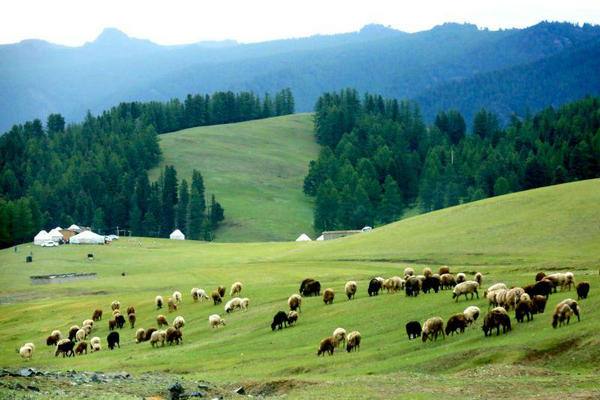

A documentary about the history of China's Xinjiang Uygur autonomous region was aired on Jan 25. It showcased an array of significant archaeological finds as testimony to the fact that Xinjiang is part of China, according to a media conference held in Beijing.
The eight-episode documentary, China's Xinjiang-Unforgettable History, chronicles how the region evolved in aspects of ethnicity, culture and religion from the Qin (221-206 BC) and Han (206 BC-AD 220) dynasties through to modern days. It is coproduced by the China Media Group and the CPC Xinjiang regional committee's publicity department.
To ensure a clear and authoritative work, more than 50 experts in archaeology, history and other fields were involved in the production. The production unit also traveled to various countries, including the United Kingdom, France and Germany, to interview foreign scholars studying the history of the region.
With its unique climate and geography, the region has played an important role in the country's archaeological studies and historical research.
The documentary features more than 200 cultural relics and documents related to Xinjiang. More than 90 historical sites and buildings in Beijing, Hebei province, Gansu province and other places were shot during the production of the documentary. Some precious relics, including the latest archaeological discoveries in Yuli county of Xinjiang in 2019, made their on-screen debut.
These archaeological finds and cultural relics presented in the documentary have clarified the following facts: Xinjiang has long been an inseparable part of Chinese territory; the ethnic groups in the region are part of the Chinese nation; Xinjiang ethnic cultures are part of Chinese culture and multiple religions have long coexisted in Xinjiang.
The documentary unfolds a colorful and spectacular historical scroll which shows how Xinjiang became the home of many ethnic groups and a place for cultural integration and how the various ethnic cultures of Xinjiang have their roots in the fertile soil of Chinese civilization, advancing their own cultural development while enriching the overall culture of China.
The beauty of Xinjiang's mountains, streams and grasslands were captured by the latest camera technology, including macro, aerial and infrared photography.
To deepen the foreign audience's knowledge about China's Xinjiang region, the documentary uses objective, credible narration and significant archaeological finds to display the long course of history in Xinjiang. This provides a strong counter-ballast to the falsehoods told by hostile forces who deny the fact that Xinjiang has been part of China's territory where various ethnic groups have lived together, many cultures have communicated with each other, and different religions have coexisted, since ancient times.
xingwen@chinadaily.com.cn